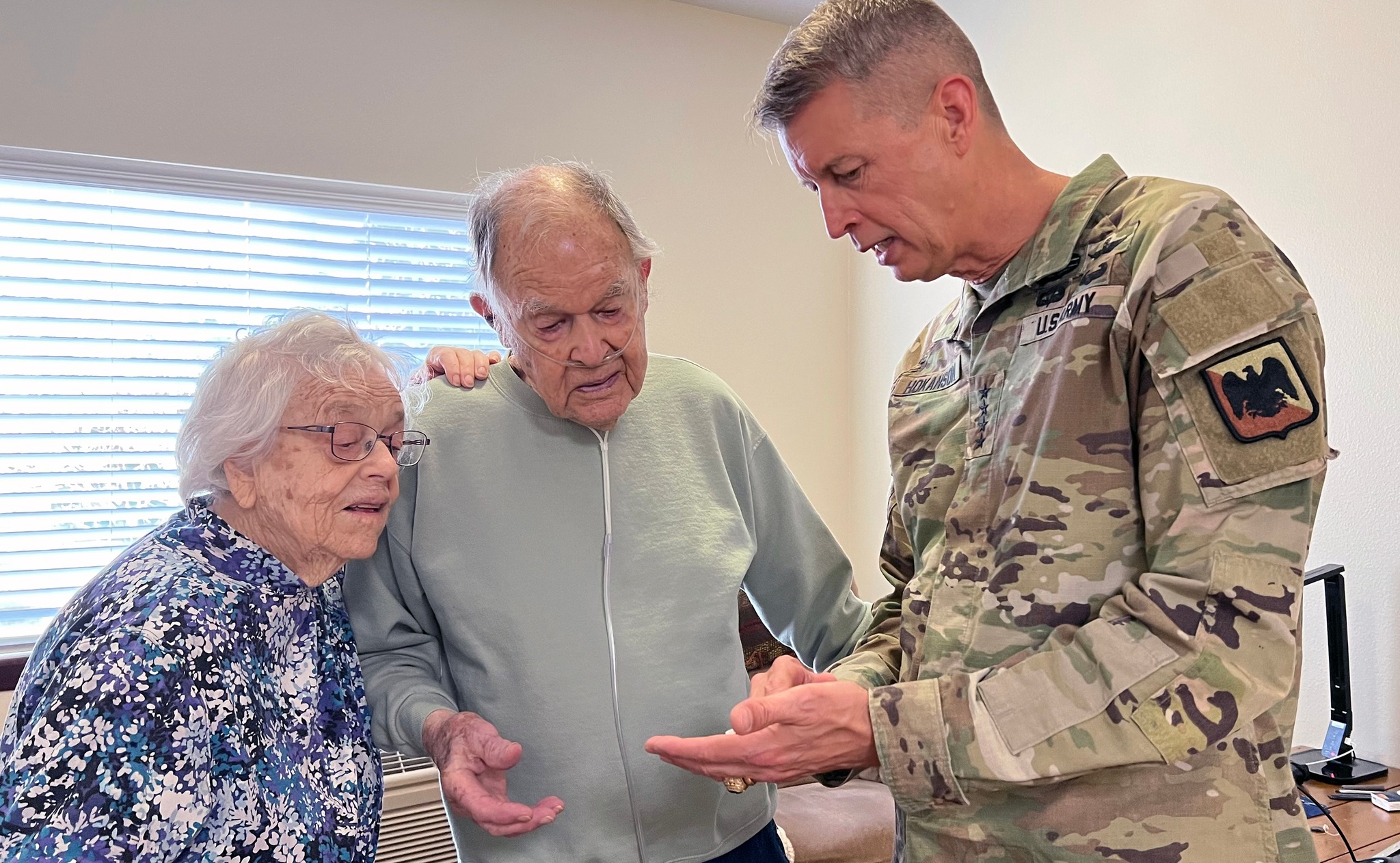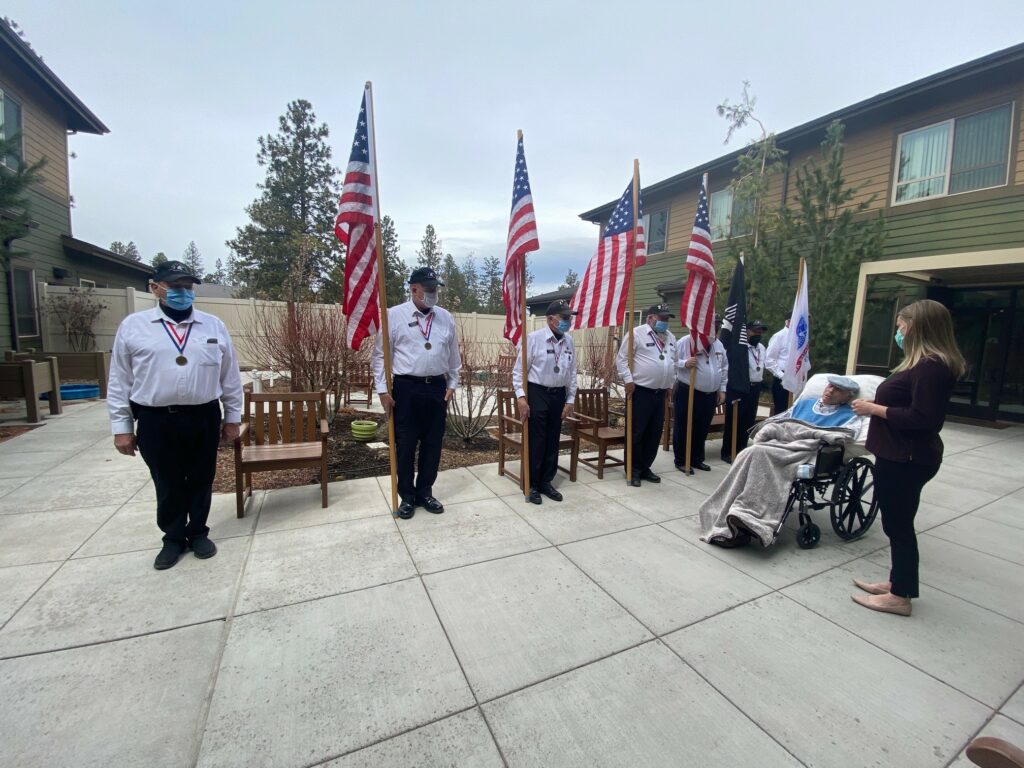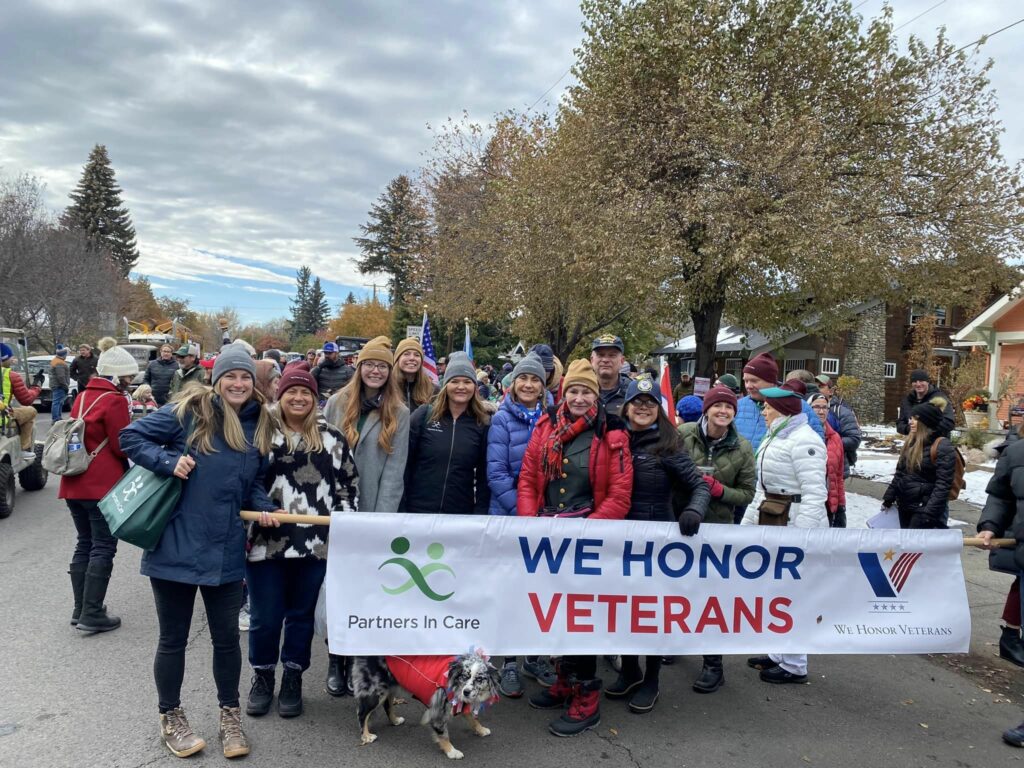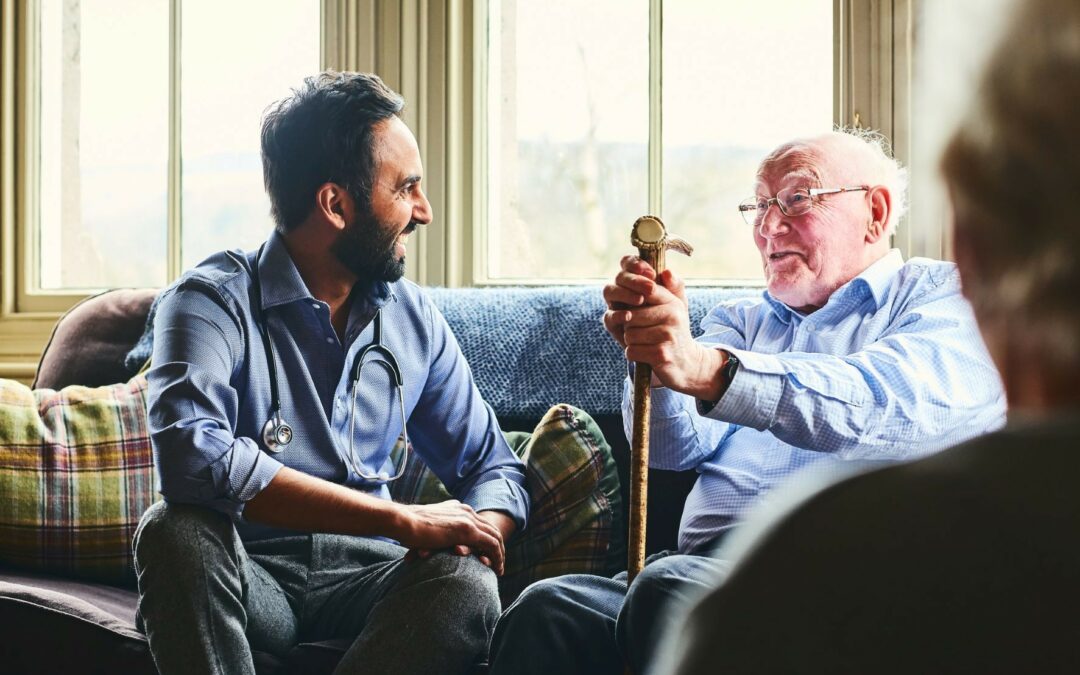When someone you love has worn the uniform, served their country, and now needs care, your role as a caregiver takes on a depth that words often cannot capture. You’re not just helping a family member—you’re standing beside a hero in their most vulnerable chapter. Whether your loved one is receiving hospice, palliative, or home health care, the weight you carry and the love you give are deeply profound.
This journey, though filled with love, can also be marked by exhaustion, grief, and moments of isolation. But you’re not alone. In Central Oregon, Partners In Care offers dedicated veteran services and support systems to walk this path with you, honoring both your loved one’s military service and your sacrifice as a caregiver.
The Heart of Military Caregiving
Being a military caregiver means stepping into a role that combines emotional, physical, and logistical responsibilities. You may be managing medications, navigating VA benefits, coordinating appointments, and advocating for your loved one’s preferences and dignity. In addition, you’re often balancing your own work, family, and emotional health.
Veterans may have unique medical conditions tied to their service—PTSD, traumatic brain injury, exposure-related illnesses—or they may simply be aging with honor, deserving of care that respects the full life they’ve lived. Your caregiving reflects not only love but resilience, duty, and a deep sense of honor.

Challenges You May Face
Each day can bring a new set of hurdles. You might face:
- Complex health conditions that require specialized knowledge or round-the-clock support.
- Emotional stress, as you navigate anticipatory grief, frustration, or memories resurfacing from your loved one’s service.
- Isolation, especially if you’re caring for your military veteran at home with little outside help.
- Bureaucracy, as you work through the maze of federal benefits and healthcare services.
These challenges are real and acknowledging them is not weakness—it’s a vital step toward finding the support you and your loved one deserve.
The Power of Palliative, Hospice, and Home Health Care
As you consider care options, understanding the differences between home health, palliative, and hospice care can help you make the best choices for your loved one.
- Home health care focuses on medical care provided at home after a hospitalization or for chronic conditions—this might include nursing, physical therapy, or wound care.
- Palliative care is comfort care that can begin at any stage of illness, even while your loved one is still pursuing curative treatments. It aims to relieve pain, symptoms, and stress.
- Hospice care begins when curative treatments are no longer pursued, focusing entirely on quality of life, comfort, and emotional and spiritual support in the final months.
Each of these supportive services respects your veteran’s dignity, their story, and their right to make decisions about how they live out their days.
Partners In Care: Standing with Veterans and Caregivers
Partners In Care is a beacon of support for veterans and their families in Central Oregon navigating end-of-life and advanced care. With deep compassion and an unwavering commitment to honoring military service, our Veteran Support Program offers specialized care tailored to those who have served.

Here’s how Partners In Care helps:
1. We Honor Veterans Program
Partners In Care is a proud participant in the national We Honor Veterans program, a collaboration with the Department of Veterans Affairs. Through this initiative, we provide:
- Recognition ceremonies to honor the service and legacy of each veteran.
- Trained staff and volunteers who understand the military experience, trauma-informed care, and the specific needs of veterans.
- Veteran-to-veteran volunteer matches, offering peer support and camaraderie in a deeply meaningful way.
When your loved one receives this care, they are seen, remembered, and appreciated not only for who they are but for what they’ve given.
2. Holistic, Individualized Support
Our team at Partners In Care—nurses, social workers, chaplains, aides, and volunteers—collaborate with you to create a care plan that reflects your loved one’s values. We listen to your goals, fears, and hopes. Whether it’s managing pain, reducing anxiety, or creating space for meaningful moments, we stand beside you with compassion and dedication.
You don’t have to be an expert in healthcare. We’ll help you understand what to expect, guide you through difficult decisions, and ensure that your loved one’s story is respected at every step.
3. Support for Caregivers
As a military caregiver, your well-being matters too. Partners In Care offers:
- Respite care, giving you time to rest and recharge.
- Grief support groups and counseling, both during care and after your loved one’s passing.
- Educational resources and assistance, helping you feel confident in your caregiving role.
It’s okay to ask for help. When you’re supported, you can offer your loved one the presence and love they need most.
4. A Place of Peace: Partners In Care Hospice House
Sometimes, home may no longer be the safest or most comforting place to receive care. In those moments, our Hospice House offers a welcoming environment—a peaceful, home-like setting where your loved one can receive around-the-clock care from a compassionate, expert team.
Located in Bend, Oregon, the Hospice House is specially designed for patients who need acute symptom management or who prefer not to spend their final days at home. Each private room offers quiet dignity, allowing your loved one to rest in comfort while surrounded by family, caregivers, and meaningful touches of home.
As a caregiver, you’re welcome here too. You can stay close, be present, and focus on sharing moments—not managing medications or logistics. Our staff handles medical care with skill and heart, so you can focus on simply being with the person you love.
Whether it’s a few days for symptom stabilization, a brief respite, or care through the final transition, Hospice House is a haven of calm, kindness, and compassionate presence.
Tips for Navigating the Journey
While you’re already doing so much, here are several gentle reminders as you continue on this path:
- Accept help when it’s offered. Whether it’s a meal, a few hours of company, or professional caregiving support—receiving help is an act of strength.
- Stay connected to community. Isolation can deepen the emotional toll. Consider joining a caregiver support group, especially those focused on military families.
- Document preferences early. Talk with your loved one about their wishes—medical decisions, legacy, rituals. Partners In Care can help facilitate these conversations.
- Care for yourself—mentally, emotionally, and physically. Even small acts of self-care, like a short walk, a deep breath, or a moment of stillness, make a difference.
A Legacy of Honor

As you walk this road, know that you carry forward a legacy of love and honor. You’re helping your veteran loved one feel seen and respected, not only for what they’ve done and sacrificed, but for who they are.
At the heart of caregiving is a simple but powerful truth: every moment of presence, every gentle touch, every word of reassurance is a gift. And with Partners In Care by your side, you don’t have to walk this journey alone.
Reach out to Partners In Care to learn more about our Veteran Support Services. Together, we will make sure that your loved one is remembered, respected, and wrapped in the care they so deeply deserve.

